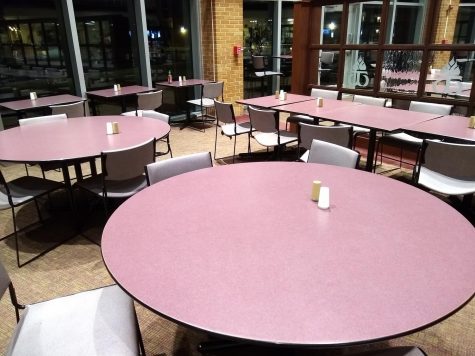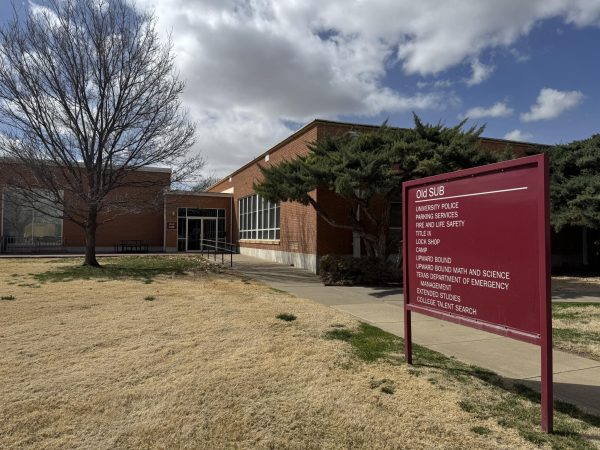We, the dining hall visitors: An open letter to the “Caf”

West Texas A&M University does an excellent job prioritizing it’s students’ needs and making sure that the bare necessities, at the very least, are met, and met with eager and genuine enthusiasm. However, like any institution, our university has more to improve upon. And as they are diligently doing so, I have one suggestion for an area they may want to focus on. It is an area that requires urgent and immediate care, improvement and maybe a little more love: the cafeteria.
Speaking from personal experience only, I have yet to meet anyone currently visiting the WTAMU cafeteria who enjoys it. My personal walk to the cafeteria, which is made as little as physically possible, is marked by a sense of dread and a certain kind of steely mental preparation that involves hard meditation on gratitude and constant reminders that the cafeteria is a convenient and important resource. Nevertheless, the same dread and discomfort remains despite the presence of paid-for and readily-available nutrition. As any college student will attest, it is difficult to cause us to pass up easily acquired food. That so many of us choose to bypass cafeteria excursions and are able to so easily malign the building that offers us food and drink, is a testament to the declining quality of this particular canteen.
The tradition of “caf-hatred” is longstanding and far-reaching. I was warned about the dining hall by juniors and seniors, who had stood the test before me. And if I had nothing else in common with a mathematics major or someone from the agriculture department, we could still bond over our mutual dislike of the cold, day-old burger patties and the lackluster cereal selection. In a certain sense, it’s unifying and a positive sinew of our WTAMU connective tissue. But in another sense, it’s a widespread problem causing mild distress, stomach ache and occasional jaw-soreness from overly chewy chicken.
Perhaps the cruelest part of the caf-tastrophe is the freshman obligation to purchase a meal-plan. Along with the requirement of living on-campus as a freshman, these students are also required to buy at least 175 dining hall meal swipes a semester, forcing hungry young adults who are eager to not let that amount go to waste become extremely familiar with stiff pizza and salsa-less tacos. This rule feels as if it should be enforced, not by a mere contract clause but by the quality of the food served.
Recent visits to the dining hall gives one the impression of severe budget and time-constraints and the place feels understaffed. I cannot help but link the decline in quality to the construction of the glittery stadium across the street. But now that the stadium is officially erected, I would implore the university to have a stern talking-to with Aramark. If new students are to be kept on campus, the nutrition they are obligated to buy should be easier to stomach.
We are not ungrateful for the food we receive. We do not ignore the work done by the hard-working staff. We are merely pointing out a weakness. And even the smallest of weaknesses, as we all know, can lead a whole system to crumble and entire empires to collapse. And while we’re at it, we’d also like a hibachi grill.












